|









|
|
The primary role of food is to supply nutrients to the body for maintenance, repair, immunity and energy. These nutrients include:


Protein gives the body the materials to build up, maintain and repair the muscles and organs. It also assists in the production of haemoglobin, the substance in red blood cells that carries oxygen around your body. Protein also creates antibodies, cells that fight off infection and disease. Protein is found in meat, fish, eggs, dairy foods, beans and nuts.
 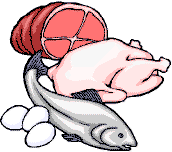 

Carbohydrates supply energy to the body. There are two different types of carbohydrates: sugars and starches. Sugars (also known as simple carbohydrates) can be found in many fruits, as well as in high-fat foods such as chocolate. Sugars are absorbed into the bloodstream very quickly to provide a fast energy boost. Starches (complex carbohydrates) take longer to be digested, so they release energy over a longer period of time, resulting in increased stamina. They are found in bread, cereals, pasta and vegetables.
 

Minerals account for a range of functions, from building bones to transmitting nerve impulses. Minerals are found in small amounts in a wide range of foods, from meat to fruit to dairy products. For children, teenagers and women, it is especially important to receive enough calcium, the mineral that strengthens bones. Calcium can be found in dairy products, leafy green vegetables and some fish such as sardines and tuna.
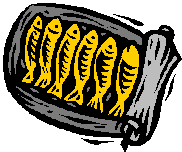 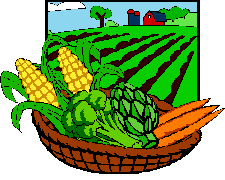

Vitamins also perform a range of functions such as aiding growth and development, boosting immunity and energy, and supporting vital organs in the body such as the eyes. Vitamins are found in a range of foods, especially fruits, vegetables and dairy products.
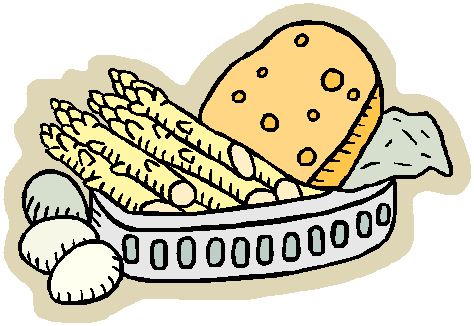

Fats are stored energy. Aside from this function, they help to make hormones that we need for a range of tasks, such as keeping the body at the right temperature and maintaining blood pressure. Fats are also helpful in moving vitamins around the body – they help vitamins A, D, E and K be absorbed by our system. Too many fats, though, are a cause of health problems, such as obesity, clogged arteries and diabetes. Fats are usually supplied by the foods eaten every day, such as meat, milk, cheese, fish and some plants.
 

Water is the main ingredient in the fluids of the body’s circulatory system, lymphatic system, digestive system and urinary system. It is the agent used in perspiration, to keep the body cool. It also acts as a lubricant for joints and organs. The body loses between 2 and 3 litres of water a day from all of these activities and more following exercise or during hot weather. As all foods contain water, a certain amount can be replaced each day just by eating, however, approximately 8 glasses of water will meet the needs for this essential nutrient more adequately.
       

Fibre is a substance found in plants such as fruits, vegetables, and grains. It helps the digestive system work properly to eliminate wastes. It has also been found to be good for the body as a whole, by reducing the chances of cancer, heart disease and diabetes.
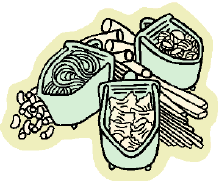 
|

![]()